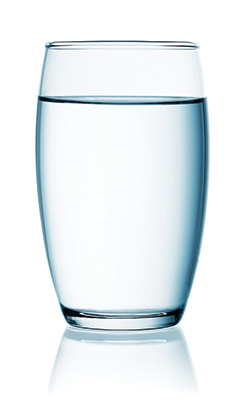Water filters not only provide better-tasting beverages but can also prolong the service life for a wide range of equipment types.
 Water filtration systems for commercial foodservice operations filter and/or soften water and come in configurations specifically designed for beverage dispensers, ice machines, coffee brewers, warewashing machines, kitchen water sources and espresso machines. They are also available as both standard and optional features on various pieces of cooking and heating equipment, such as steamers, combi ovens and steam-jacketed kettles.
Water filtration systems for commercial foodservice operations filter and/or soften water and come in configurations specifically designed for beverage dispensers, ice machines, coffee brewers, warewashing machines, kitchen water sources and espresso machines. They are also available as both standard and optional features on various pieces of cooking and heating equipment, such as steamers, combi ovens and steam-jacketed kettles.
Water filtration systems can help reduce scale buildup caused by the carbonate hardness in the water. This helps reduce equipment downtimes, lower service costs, decrease energy costs, and eliminate spotting on glassware and cutlery. These units also can reduce lime scale, which compromises the water’s aroma and taste.
In addition, these units utilize filters to break down and remove corrosive chemicals in water lines, such as chloramines, chlorine and ammonia that can build up as scale and slime and damage equipment. They also remove health hazards found in water, such as particulates, fibers like asbestos, and Giardia cysts.
There are four types of hardness in water. Total hardness includes all dissolved calcium and magnesium ions. Total salinity incorporates sodium, potassium, iron, magnesium, calcium and cupric. Carbonate hardness includes minerals that create lime scale when heated. Non-carbonate hardness or permanent hardness is caused by calcium and magnesium ions that adhere to sulfate, chloride, phosphate and other anions.
Water treatment systems fall into three broad categories. Chemical-reduction filters remove microorganisms and chemicals from water, “softening” it for use in various applications. Since these systems use chemicals to treat water, they are typically rated by the amount of water they can filter. Mechanical filters remove harmful particulates from water, such as dirt and cysts. The type and amount of particulates that are filtered determine the life of mechanical filters. Multipurpose filters remove both chemicals and particulates. Since every 1/8-inch of scale reduces equipment’s energy efficiency by about 25 percent, water filters that minimize scale-forming minerals help increase equipment efficiency.
While point-of-use filters plumb to a single piece of equipment, combination or multi-equipment filters are installed in a central location and supply different water qualities to multiple pieces of equipment.
There are two types of water filter cartridges: drop-in filters and sanitary quick-change, or SQC, filters. While drop-in filters have screw-on canisters that house a replaceable filter, SQCs are fully encapsulated with no exposure to the elements being filtered.
Water filtering and softening units are available in capacities that range from small, single cartridges used for treating water flowing through an espresso machine to multi-cartridge systems that filter and/or soften all water entering large commercial facilities. Though water treatment systems are generally rated based on the amount of water they filter or particulates they remove, they are also classified by how much water they can filter in a given amount of time, typically one minute. Modular water filter systems offer added flexibility by allowing for add-ons when water volume increases or water quality changes.
Treatment systems are available with controls including mechanical, electronic, time clock or water flow control options. Pre-filter kits that attach to existing water treatment systems are available for locations where water contains excessive levels of contaminants. Pre-filter kits may include surge tanks that can hold up to 12 gallons of filtered water for use during periods of peak demand. LED signals are available on ice machines to remind operators to change filters.
Four-step filters represent another option. They include an ion exchanger, activated carbon and particle filtration. First introduced in Europe, this technology reduces heavy metals, decarbonizes, improves water’s odor and taste, reduces chlorine and chlorine compounds, reduces organic impurities, and removes particles. Its flow system helps prevent undefined mixed water buildup and reduces carbonate hardness.
Manufacturers also offer water treatment systems infused with antimicrobial agents, which prevent bacteria from growing in the system itself. Since a single operation can have multiple water treatment requirements, manufacturers are also now offering all-in-one filtration systems that house multiple treatment cartridges in a case with a small footprint. A binder-free carbon filter features hollow carbon technology, which removes more dirt and offers a longer service life than traditional carbon block filters.
Two water-filtration-related innovations include miniaturization and RO (reverse osmosis) water savings. Newer RO systems use substantially less water than older traditional models with water-making efficiencies as high as 80 percent.
Foodservice operators also now have the ability to monitor water filtration in real time. This not only helps gauge the system’s performance but it also monitors how many gallons of water are being used and if there’s a problem with the filter.











